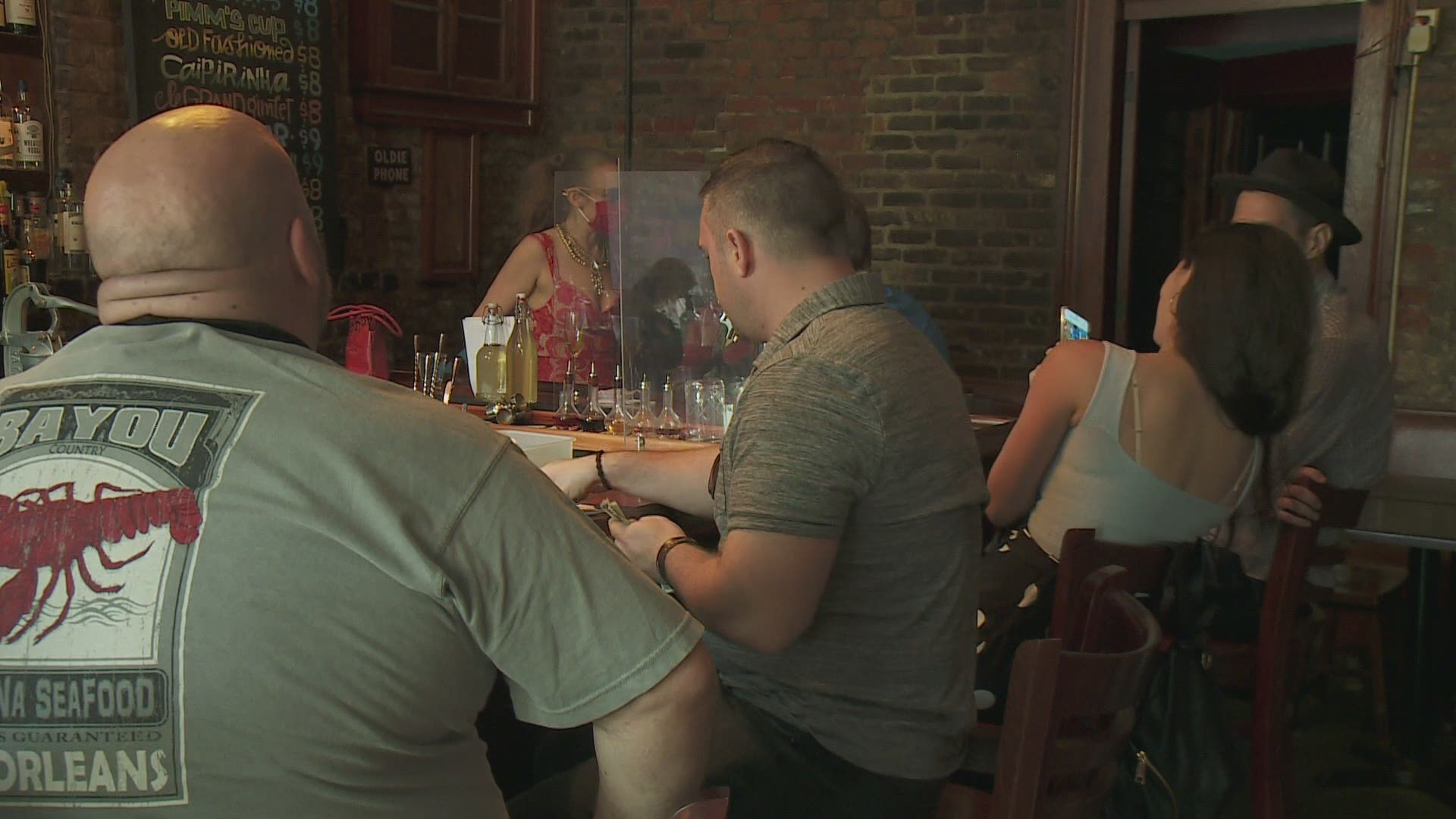NEW ORLEANS — Different parishes and states have different COVID restrictions, and they're changing all the time. Some people are glad and others are still concerned for their health.
So we wondered what researchers have learned in the last year about community spread.
We've heard the latest COVID mandates from elected officials, but what's the latest science? Tulane microbiology and immunology expert Dr. Chad Roy helps us understand what increases and what decreases your risk. First, there are very few numbers of people catching the virus outside.
“So if you're in an outdoor environment where you've got millions of liters of air around you for dilution, and you're vaccinated, there's probably not a very good reason for you to wear a mask,” said Dr. Roy.
Next, what if you’re traveling on a plane?
“All of our airplanes are 100 percent fresh air and there's a fallacy that they recirculate air, It's actually a relatively low risk environment.”
A new MIT study suggests six feet of physical distancing doesn't do much to stop the smallest of aerosol droplets that carry the virus indoors. Dr. Roy discovered those can stay in the air for 16 hours. At hundreds of times smaller than the width of a human hair, they're easily breathed deeply into the lungs.
“There is a very good possibility that it does spread by small particle aerosol, and that's what the prevailing science is. Six feet is for, mostly for the large particles that may be out there,” explained Dr. Roy.
So you can even be 60 feet apart, and at high risk, if everyone is breathing the same air for an extended time.
“Very crowded, low ceiling, poorly ventilated bar or restaurant, and there's no mask mandate in that restaurant,” he said would be high risk.
Plexiglass is a false sense of security.
“I've been in aerobiology for a really long time, and I've learned that air, and the things that are in our air, moves very much like water.”
Dr. Roy says masks work, but nothing is better than this.
“You want to decrease your risk dramatically, go get the vaccine.”
And Dr. Roy added that out of all the vaccines we take, the ones for COVID are among the best at prevention.

